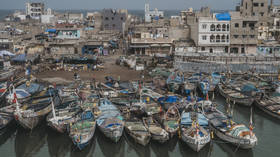EU to end controversial agreement with African state

The European Union has decided not to renew a fisheries agreement with Senegal and will bring its vessels back to Europe, according to a statement made by the bloc’s delegation in Dakar on Tuesday.
The move is in line with the EU’s zero-tolerance policy toward “unreported and unregulated” fishing, according to the statement.
The EU identified Senegal as a “non-cooperating country” in the fight against illegal fishing earlier this year. It cited “failures in monitoring, control, and surveillance systems” on Senegalese vessels in extraterritorial waters, as well as foreign ships a the port in Dakar.
“Due to the shortcomings observed in the fight against illegal, unreported and unregulated (IUU) fishing, the EU cannot consider renewing the protocol until there is sufficient progress by Senegal in this area,” the statement said.
“The protocol expires on 17 November, and Senegal will no longer receive any financial contribution under the fisheries agreement,” it added.
The former French colony and EU have been partners in the area of fishing since the early 1980s. However, the current deal, signed in 2019, permits European vessels to fish mainly for tuna and black hake in Senegalese waters. It has contributed €8.5 million to the African state’s national budget over the last five years, according to EU figures.
While some in Senegal, where fishing stocks are said to be depleting due to overfishing, have criticized the agreement, the EU claims catches by its vessels represent less than 1% of total harvests made and declared in Senegalese waters. The Associated Press cited “many local fishermen” as saying that they struggle to compete with the foreign industrial trawlers and barely catch enough fish to make a living.
In May, Senegalese President Bassirou Diomaye Faye announced an audit of the fishing sector and the agreement with the EU, which he had earlier vowed to renegotiate as part of efforts to restore marine resources and limit industrial fishing vessels in order to improve the country’s food security. Elected in March, Faye has described the current cooperation between Dakar and the EU as “complicated” and called for a reassessment.













